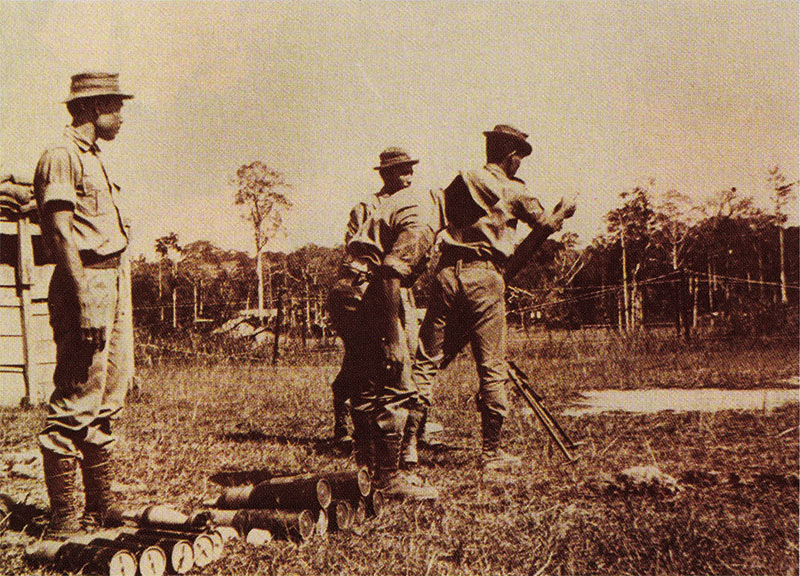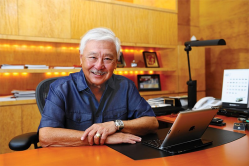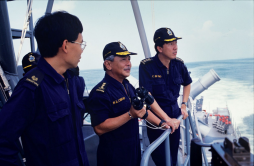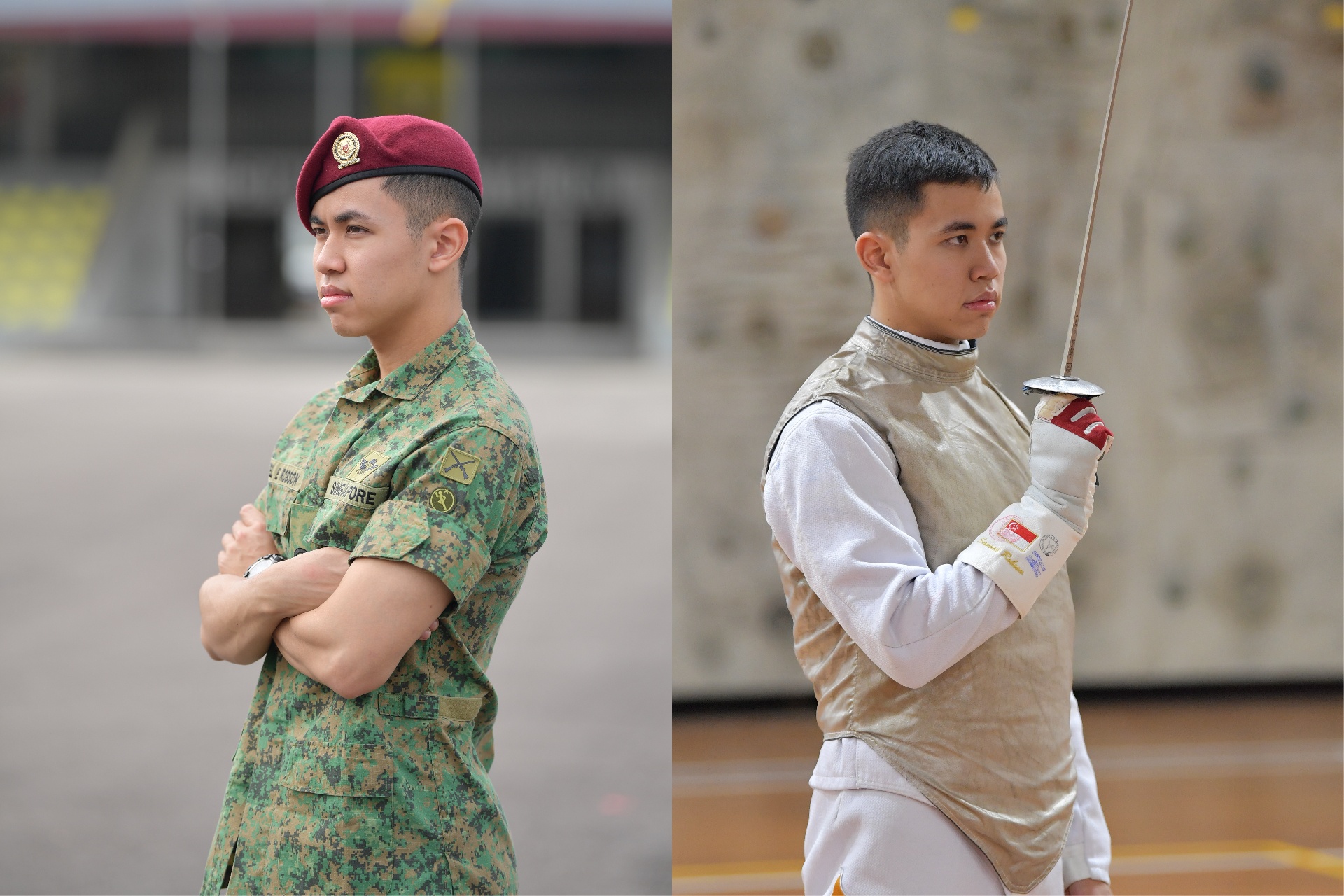PEOPLE
FROM SCEPTICISM TO ACCEPTED WAY OF LIFE
22 Nov 2013
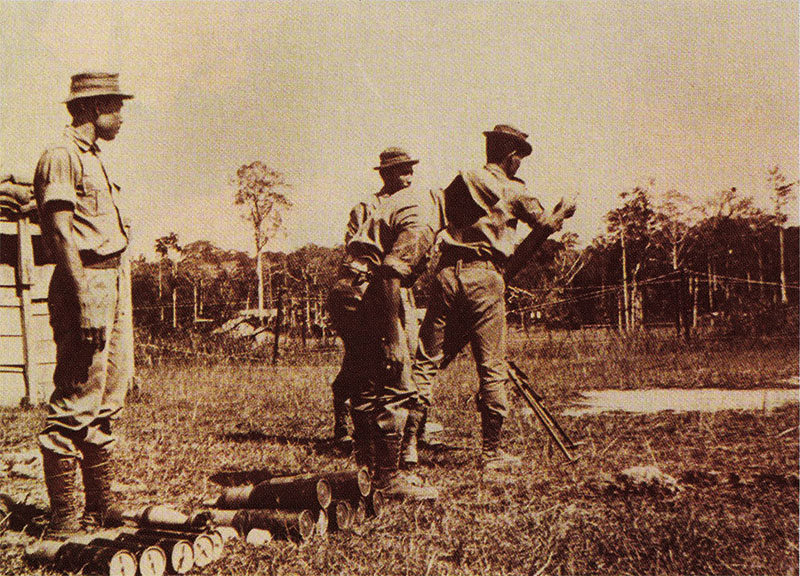
Lieutenant-General (LG) (Retired) Winston Choo, the first and longest-serving Chief of the Singapore Armed Forces (1974-1992), shares his personal insights of his years in the army and of NS.
On 9 Aug, thousands of Singaporeans celebrated our nation s 48th birthday. What many may not know, however, is that August also marks the month that the first batch of 9,000 young men were enlisted for compulsory National Service (NS) in 1967.
This first batch led the way. Now, 46 years later, more than 900,000 Singaporeans have served and played their part in defending our home.
When I joined the military in 1959, the Singapore Armed Forces did not exist. Even Singapore did not exist then as an independent nation.
City boys can fight too
After I was commissioned as an officer in 1961, I was in the 1st Battalion Singapore Infantry Regiment (1 SIR), who were all career soldiers.
In 1963, then-Indonesian president Sukarno launched the Konfrontasi or Confrontation campaign to oppose the formation of the Federation of Malaysia, which merged Singapore, Malaya, Sabah and Sarawak.
When the Confrontation broke out, we were sent to Sebatik Island south of Sabah - the northern half was under Malaysia, the southern half was under Indonesia. We were there conducting operations for about seven months. Our role was to patrol the border areas and ensure that there were no intrusions by infiltrators into Sabah.
We went there expecting to take fire, expecting to fight. We didn t have any experience then and, of course, there was some degree of apprehension that we could lose our lives.
We had a real enemy across the border, and it is only natural that any person would feel fear. We were all carrying loaded weapons and you don t carry loaded weapons unless you expect to use them.
When you go into an operational zone, you must go in with the expectation that this danger might happen. There was always this sense that we could be shot at. But if you train your people well and motivate them well, they will fight, and fight well. We knew that it was professionally and operationally expected of us to fight.
I remember that when we first arrived, the talk within the Brigade - we had a Malaysian Brigade Commander - was, "these Singaporeans cannot fight. They are city boys."
As it turned out, we could. There was shooting and mortar fire, and we continued with our operations. Our soldiers performed their tasks courageously and did not turn tail and run. Fortunately, those of us in 1 SIR didn't suffer any casualties, though our brothers from 2 SIR did in Kota Tinggi.
We executed our duties as professionals and we showed the rest that we were capable of fighting alongside the best of them.
But that was just the first battle that we had to fight.
Becoming independent
Two years later in 1965, Singapore separated from Malaysia. We were in camp when they said that then-prime minister Lee Kuan Yew was going to make a statement, so we turned on the radio. His voice broke because he was very emotional - I will never forget his voice when he announced the Separation.
At the time, we had a mixture of Singaporean, Malaysian and British soldiers in my battalion. Nobody showed a lot of emotion, but the funny thing was that the British officers were the ones who cheered, whereas the rest of us were more subdued. Because I think to us, the repercussions and implications were tremendous.
I was just a young captain then, but what struck me was the importance of having the military capability to ensure Singapore's sovereignty. We were all concerned about the future, about what was going to happen to Singapore. It became evidently clear to me that unless we had a strong military, we were not going to survive.
We had two army battalions then. In 1 SIR, three-quarters were Singaporeans, one-quarter Malaysians. The ratio in 2 SIR was almost 50-50. We realised we would only have one and one quarter of a battalion after the Malaysians left.
And even after independence, the presence of the Malaysian Armed Forces in Singapore was still overwhelming. A battalion of the Royal Malay Regiment continued to occupy Temasek Camp at Holland Road. They refused to vacate the battalion camp, and 2 SIR, which had returned from Sabah, had to live in tents at Farrer Park. It took them quite some time before they pulled out and 2 SIR went back to Temasek Camp.
Any thinking Singaporean, especially those involved in the military, would realise how naked we were as a small country.
When the time came for us to build the Singapore Armed Forces, there was no doubt among us about the need to have our own defence capability.
Taking charge of our own
I had been under the command of the British, then the Malaysians, and finally we Singaporeans were in charge. It was as though I had been in three different armies, but I never changed my cap badge or my uniform. To me, I was always just a part of the Singapore Infantry Regiment.
Everything that I had gone through made me appreciate Singapore's independence even more. We were now the owners of our own destiny. Vital to that was the capability to look after ourselves and be responsible for our own defence.
At the time, the Vietnam War was raging and the American soldiers were pulling out, so there was a more heightened sense of the need for security and defence.
It was a continuous stretch of events - the Confrontation, the breakaway from Malaysia, the Communist threat during the Vietnam War, and the withdrawal of British troops from Singapore and the region - that made us aware of our vulnerability and the need to be strong.
We could only have a capable armed force through NS. Singapore could not, and cannot, afford to raise and maintain a non-conscript armed force of sufficient strength without bankrupting our economic workforce.
When NS was introduced in 1967, it was not a popular move. The Chinese had a saying, "Good sons don t become soldiers." Our leaders, led by Mr Lee Kuan Yew and then-defence minister the late Dr Goh Keng Swee, went out of the way to emphasise the importance of NS.
There were send-off parties in every constituency, where all the young men who were supposed to go do NS attended dinners with their Members of Parliament, and were given gifts and some small mementos as a gesture of appreciation.
When we first started NS, of course there was a lot of mystique and doubt as a result of rumours and lack of awareness. I think the youth of today and the average Singaporean parent now have very good knowledge of what to expect. These days, parents are encouraged to visit Pulau Tekong and the Basic Military Training (BMT)graduation parade has become more visible to the public - they hold it at the Marina Bay Floating Platform, and parents and other Singaporeans can see them and take pride in them.
Then and now
It took us a long time and a lot of effort to get NS fully accepted as a way of life, as something every son of Singapore should be doing. Now, every young man expects that, after he finishes his ITE, polytechnic studies or A levels, he has to do his NS. It is something which everyone today accepts as a given, a fact of life. That much has changed over time.
Of course, you find a lot of fathers today who say; "Wah, your NS so easy, so soft." I don t believe that. I have never looked upon life as being "so easy now," or that NSmen today are sacrificing less than what NSmen of yesteryear have sacrificed.
Training is still tough, and life is still difficult. It is still a big sacrifice to do NS, perhaps even more so today. Maybe the treatment was a bit crude and rough before, whereas now it s more refined. That doesn't mean it's softer or more lax.
If you look at the NS soldiers of those days, many of them were not very well educated and didn t even have O levels.
We have a different calibre of people coming in now - the younger generation are better educated, and can meet the same training requirements more efficiently and effectively.
The need for and importance of NS will always be there, but the type of people who come into NS will change over time. The SAF must be dynamic and continue to adjust the way they train soldiers.
New century, new challenges
In some ways, the challenge for MINDEF and the SAF today is greater than it was for us then. When we broke away from the Federation and had to form our own armed forces, our vulnerability was very evident. My generation understood this very clearly.
How are you going to put this message across to today's Singaporeans?
It can be a difficult thing for people to connect with, but you cannot take for granted that the peace you have today will always be there. If you are not prepared to fight, how can you expect anyone else to come and do it for you?
In a way, half our battle is already won because many Singaporeans today have served NS. The people I have meet, especially the fellows who served with me in the SAF, always think fondly of what they did when they were in NS.
Not everybody has had a good NS experience. But even so, I think if you ask those who have gone through life after serving NS, very few would say in retrospect that they have not benefited from NS.
Singapore is what it is today because our fathers, brothers, uncles and cousins served NS. Every generation has to step up to do their duty. Old soldiers like me have done our turn, now it s up to the next generation to carry on this duty.
(This article was first published in The Straits Times on 24 Aug.)
"Everything that I had gone through made me appreciate Singapore s independence even more. Vital to that was the capability to look after ourselves and be responsible for our own defence."
- LG (Ret) Choo
Then Chief of Defence Force, LT-GEN Choo (centre) visiting 185 Squadron in 1990. He is accompanied by then Colonel Teo Chee Hean (right).
Lieutenant-General (Retired) Winston Choo was the first and longest-serving Chief of the Singapore Armed Forces (1974-1992). He left the military after a distinguished 33-year career, and has since held several diplomatic appointments and served on the boards of various companies. He is currently chairman of Metro Holdings' Board of Directors and Non-resident Ambassador to Israel.
ALSO READ IN PEOPLE
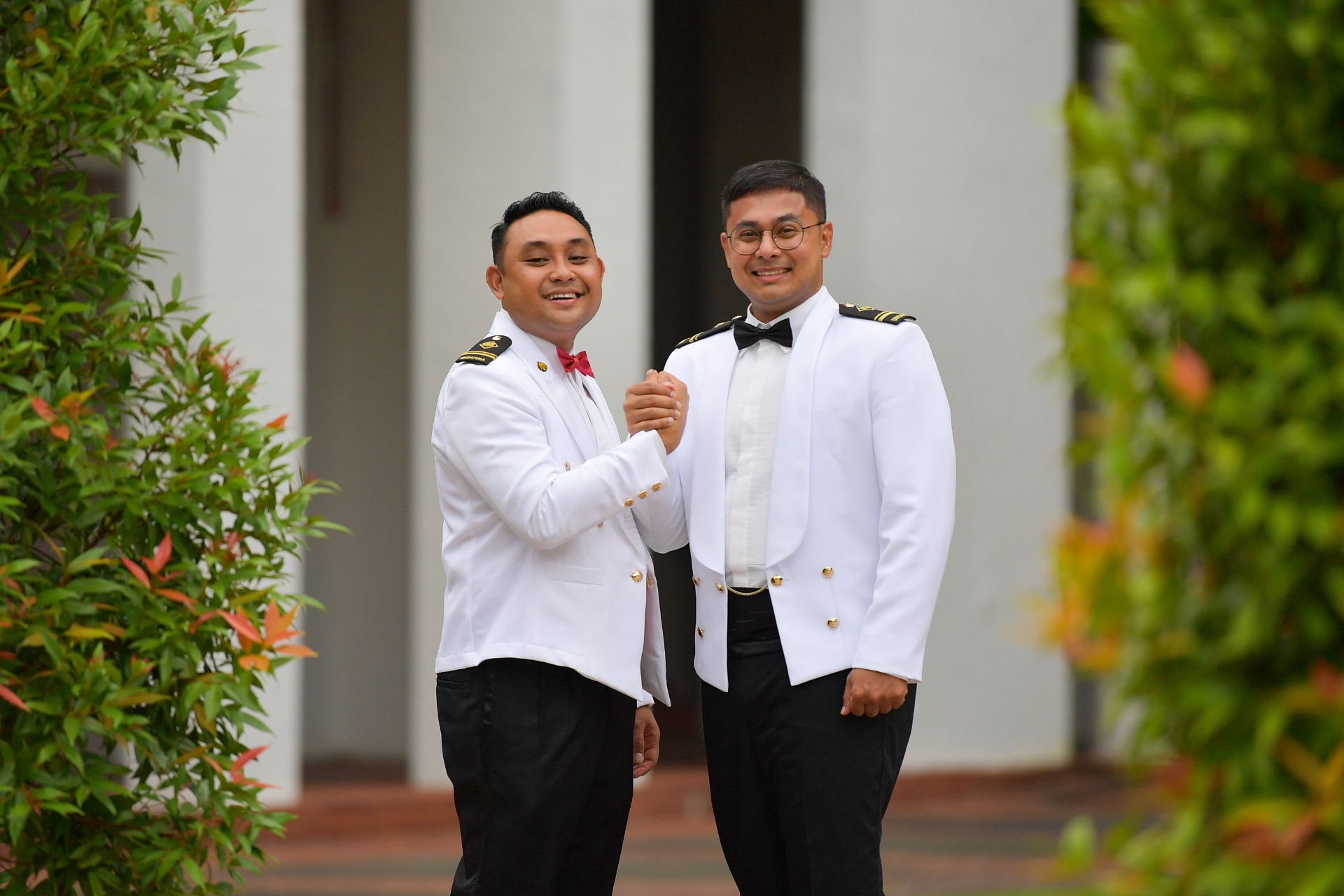
Bringing their civilian expertise to contribute more in NS
22 Jan 2026
On 21 Jan, the SAF welcomed its largest group of NSmen graduating under the Enhanced Expertise Deployment Scheme. Meet ME4 (NS) Muhammad Arief Aditya and ME4 (NS) Mohamed Najid Bin Mohamed Sultan, who are among these newly appointed military experts.
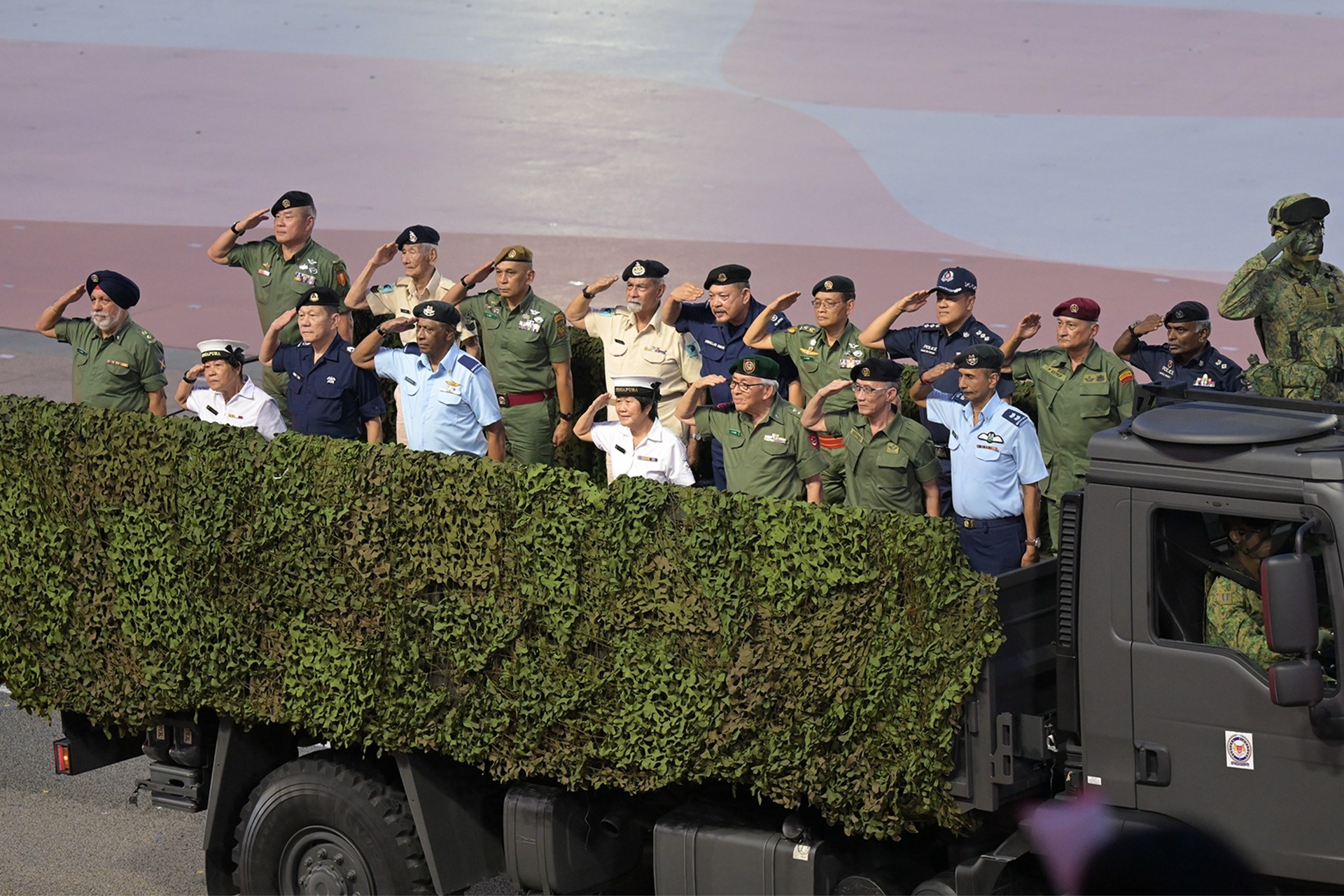
Guardians of legacy
15 Dec 2025
He helped build the RSAF’s first aircraft. She was one of the first women to join the navy. He managed communication crises in a time when a pager beep meant trouble. Meet these veterans who saw Singapore through turbulent times to build a strong SAF.
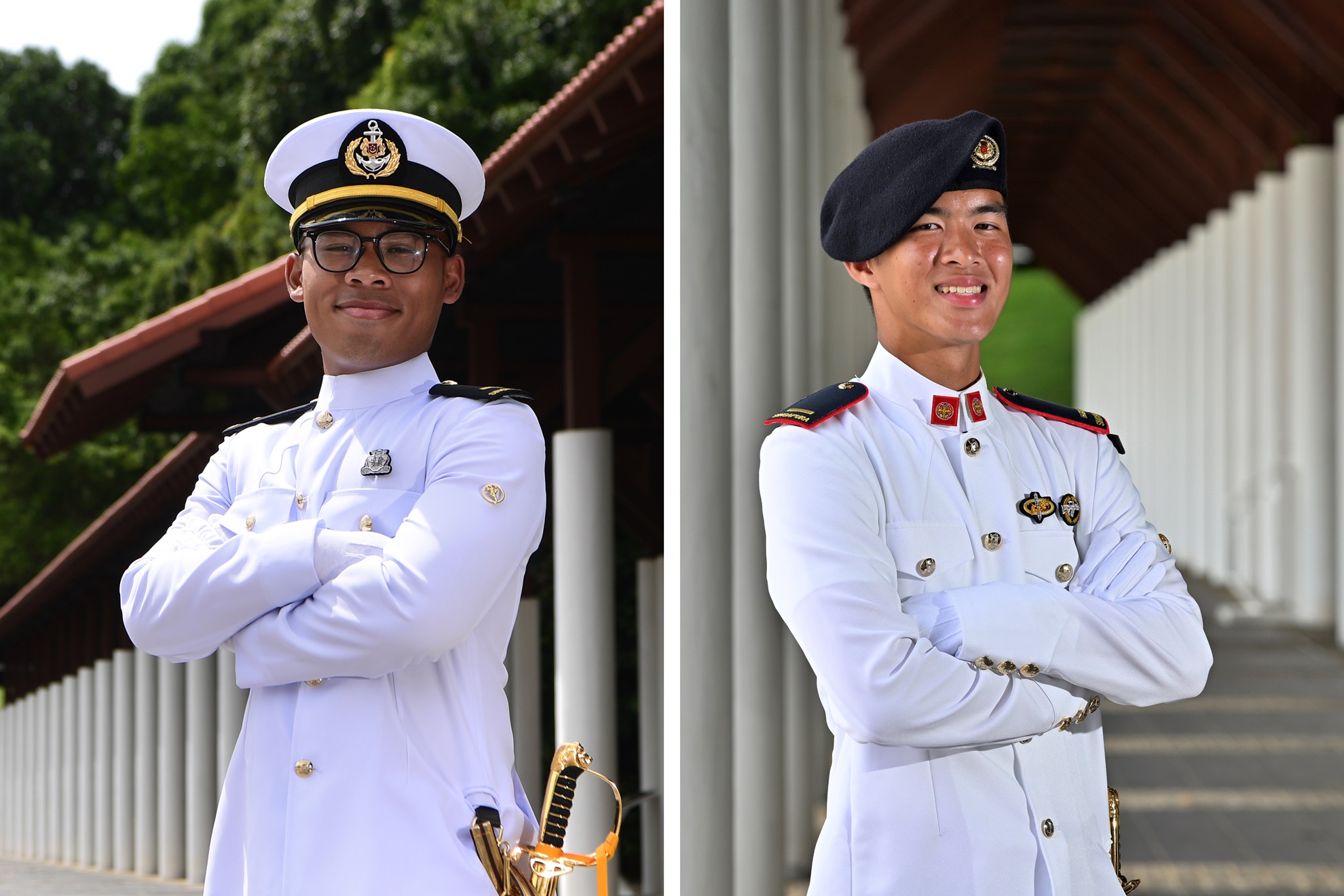
Rising above the tide & stepping forward to lead
13 Dec 2025
They’re among the SAF’s latest batch of officer graduands this year. Meet 2LT Mohamad Wira Kuriniawan and 2LT Ryan Ong, who will be heading to the Navy’s 180 Squadron and 1st Battalion, Singapore Guards respectively.

